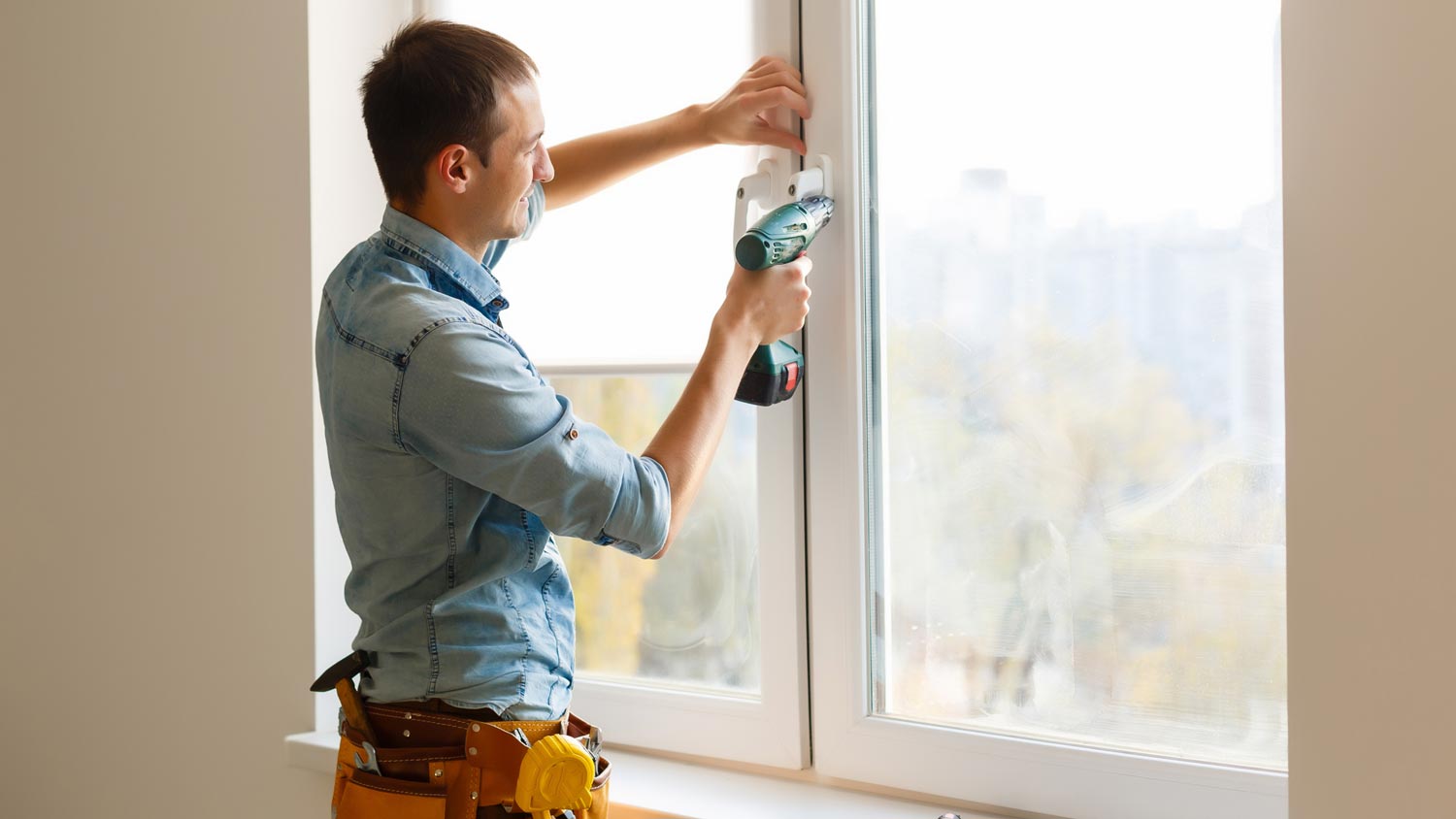
Fire damage restoration costs vary widely based on the extent of the damage. Learn how to assess your home and estimate your total after a fire.
Follow these steps after a house fire to ensure your family’s safety


House fires can be devastating and traumatic, and sometimes, it’s hard to process what to do in such situations. However, it’s important that you act swiftly to protect yourself and your family and salvage what you can of your home and your belongings. Luckily, emergency services and professional fire restoration contractors can help you navigate what to do after a house fire—and make the process as stress-free and emotionally untaxing for you as possible.
While fire restoration is a longer-term process, we first want to address what to do immediately after a home fire, assuming you and your family are safely out of the house. Here are the steps to take:
First and foremost, alert the authorities so they can dispatch fire trucks and ambulances on site in minutes. Make the call far enough away from the house to ensure your safety.
Make sure your whole family, including pets, is accounted for. If anyone is still in the home, alert the fire crew and give detailed information about where the person or pet most likely is. This will help them strategically find your loved one and get them out to safety.
While the firefighters are working to put out the fire, contact family and close friends to let them know what’s happened. You may need to arrange to stay with someone in the short or long term, but more importantly, your loved ones may want to come to offer emotional support, no matter the time of day.
If anyone was injured by the fire or in the scramble to get out, talk to the EMTs on site. They’ll help you determine if you need an ambulance ride to the hospital or if you can transport the injured person directly to the emergency room yourself.
If a pet is injured, find a local 24/7 emergency pet hospital.
The most important thing to do in the immediate aftermath is to make sure your family is safe and accounted for and address any medical issues. After those more urgent needs are met, however, there’s still a lot to do after a house fire that will require organization and professional assistance.
Here’s what to do:
The first thing to do is assess the extent of the damage. Never attempt to do this on your own by reentering the home.
Instead, speak with the fire crew on site to understand whether it’s safe to enter the home. If it is, you may need protective gear; always follow the crew’s instructions. When you enter, you can begin documenting the damage for insurance purposes.
If it’s not safe, you’ll want to get the fire damage restoration underway so you can eventually reenter your home to sort through your belongings.
Regardless of how extensive the damage is, always make sure you get a copy of the fire report.
Your homeowners insurance will play a crucial role in the recovery process after a house fire. Call your agent or the claims line right away and follow their instructions. The agent on the line will be able to walk you through any immediate steps, forms to fill out, reports to file, and other actions you’ll need to take.
The insurance agent will likely be able to advise on some of the next steps as well, like how to document damage and which professional teams to hire to oversee the restoration of your home. Make sure the agent understands if the house has or hasn’t received the all-clear for you to reenter and document the damage.
While homeowners insurance should cover the major costs of a house fire, including repair work, replacement of damaged items, and even temporary food and lodging if needed, you may also want to file a claim with the Federal Emergency Management Agency (FEMA) for federal aid. However, FEMA is usually reserved for house fires caused by wildfires or other weather-related events.
You’re not done making calls yet. As soon as you can, contact your utility companies—including gas, electric, and water—to shut off all utilities to your home. Doing so can help prevent further damage.

If you won’t be able to stay in your home for the time being but there are still undamaged items of value inside, such as furniture, jewelry, artwork, or electronics, you’ll want to secure your home as best as you can. Board up doors and windows, and consider putting temporary fencing around the property. Even if there aren’t valuable possessions, criminals may try to enter to steal raw materials, such as copper piping.
Securing your property also protects it against further damage from weather and animals.
Assuming your home is temporarily uninhabitable—or if it’s been completely destroyed and you’re waiting for the insurance payout to purchase or rebuild a home—you’ll need to stay somewhere else. You can certainly speak with family and friends to see if you can stay with them; the emotional support and familiarity might be nice at a time like this.
That said, your homeowners insurance policy may cover food, lodging, and even clothing in the interim. Check with your agent to understand what is and isn’t covered and make the most out of your policy, as needed.
The bulk of the work that needs to be done to your home should be left to a trusted and highly rated fire damage restoration crew near you. This team is licensed and trained to thoroughly inspect the damage and devise an action plan to restore your home to its former glory.
The fire damage restoration process usually involves the following:
Home inspection
Cleanup and hauling of junk
Drying out the space
Soot cleanup
Smoke damage remediation
The crew will also be able to advise if there are larger structural concerns that might require a local structural engineer to give their opinion.

Another task you’ll need to tackle only once you’ve been approved to return inside the home is to gather belongings you want to salvage and make arrangements to transport them to a temporary storage facility.
You’ll need to document anything that is beyond repair and submit claims to your insurance agent. Once approved, you can arrange to have the damaged items hauled away. On average, the cost of junk removal is $250.
While the work of the fire damage restoration crew is crucial, your home likely needs additional work beyond cleanup and water damage remediation. Based on visible damage and the assessment from the inspection, you may also need to hire:
A local plumber to fix any burst pipes or other plumbing issues resulting from the damage
Drywall repair pros to rebuild walls (and a painting crew to paint them)
A roofer near you to repair or rebuild a damaged roof
An electrician to rewire your home, if needed
In some cases, you may need to hire a general contractor near you to oversee much larger repairs, like renovating entire rooms that have been utterly damaged by the fire. For a project of this size, the general contractor can handle the overall vision of restoring your home—and they’ll work on hiring subcontractors for elements like flooring, painting, plumbing, and electric as needed.
Not all fires cause total destruction, and the amount of damage impacts how much you’ll pay for restoration. The largest portion of restoration projects (33.9%) involves smoke damage but little to no fire damage. More serious cases, in which a portion of the home has burned, account for 29.7% of pro visits. Only about 10% of fire restoration projects focus on repairing structures that have burned down completely.
Fire damage restoration costs anywhere from $3,075 to $48,675, depending on the extent of the fire damage in your home. Repairs after a contained kitchen fire, for instance, will be much more affordable than restoring a home after a fire throughout the whole home. The average cost of house fire restoration comes in around $25,800.
You should always hire a team of professionals following a house fire. Here’s who to call for smoke damage, water damage, and structural concerns following a fire in your home. Most homeowners insurance policies will cover this cost—and they have the proper training and safety equipment to perform a comprehensive inspection and fully restore your home.
Trying to tackle it on your own means exposing yourself to severe health risks. It also means you may not fully eliminate smoke or water damage—and will move much more slowly on your own than a large team of experts. And because fire damage restoration might mean anything from roof and drywall repair to plumbing and electrical work, it’s better to leave these tasks to licensed, trained professionals.
House fires can happen even with the best prevention measures in place. However, you can dramatically reduce the chances of a house fire with a little proactive upkeep and some updates to your home, including:
Cleaning ducts: Clean your ducts every three to five years to prevent flammable lint and debris from building up. On average, duct cleaning costs between $275 and $500.
Scheduling electrical inspections: Hire an electrician to inspect your electrical system about every five years to look for problems and fix them in advance.
Installing a sprinkler system: Indoor and outdoor fire sprinklers activate quickly via fire’s heat, and the water can help control flames before they cause extensive damage. Home fire sprinkler systems cost between $2 and $7 per square foot in existing homes.
Testing smoke detectors: Test smoke detectors once per month to make sure they alert you in the event of a fire. Replace batteries at least once per year. And remember: Smoke detectors last approximately 10 years. Eventually, you’ll need to purchase all-new detectors rather than simply replace the batteries.
Keeping fire extinguishers in the home: Always keep a fire extinguisher in the kitchen and in any room with a fireplace. Replace fire extinguishers when they expire.
Using correct extension cords: Do not overload extension cords, and make sure your extension cords are compatible with any devices that are plugged in.
Keeping an eye on heat sources: Don’t leave candles or fireplaces lit in empty rooms, and make sure to stay in the kitchen when using the stove and other appliances. Here’s how to put out a fire in a fireplace at the end of the night.
Clearing the space around outlets: Avoid placing flammable items, like a basket of blankets or a pile of books, near outlets, especially when things are plugged in.
Using space heaters carefully: Portable heaters are a top cause of house fires. Stay nearby when one is plugged in and closely follow the user manual’s directions.
Adding a fire-resistant roof: If your roof sustains damage after a fire, consider replacing it with a fire-resistant roof for better protection in the future. This is one of the best ways to fireproof your home.
From average costs to expert advice, get all the answers you need to get your job done.

Fire damage restoration costs vary widely based on the extent of the damage. Learn how to assess your home and estimate your total after a fire.

Fire hydrant costs might not be an expense you think about day-to-day, but they’re important to consider for the safety of your home.

Ozone treatment can help with lingering smoke odors. Learn about ozone smoke removal costs to get an accurate idea of how to budget for this service.

What does dry rot look like? Knowing what signs to watch for will help you identify and treat infections before they’re too big to fix.

If you see mushroom-like structures on wood at your home, you likely have wood rot. Learn more about the two primary types of wood rot—dry rot versus wood rot.

A water leak in your house is definitely a cause for concern. So, how do you know who to call for a water leak in the wall? Read this guide to find out.